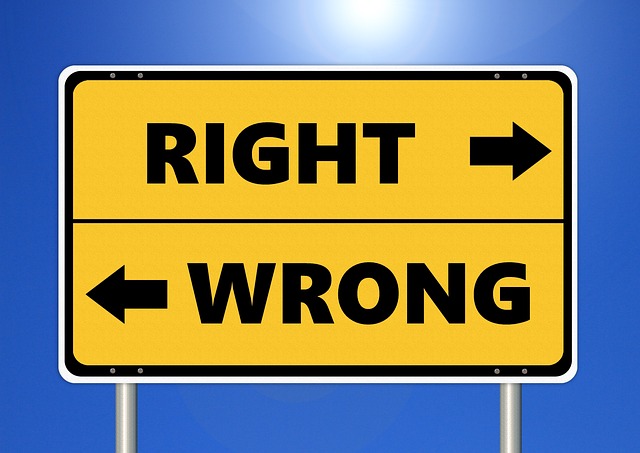The Importance of Emotional Balance in Personal Relationships
Emotional balance plays a crucial role in the quality and success of personal relationships. It refers to the ability to manage and respond to your emotions effectively, while also understanding and empathizing with the emotions of others. In our fast-paced world, where stress and anxiety are often the norm, striving for emotional equilibrium is more important than ever. This quest for balance influences not only how we interact with others but also how we perceive ourselves. Moreover, achieving emotional balance involves both personal development and deep interpersonal understanding.
Imagine being in a scenario where emotional turbulence reigns. A simple miscommunication can escalate quickly when one or both individuals lack emotional balance. Think about it—when we don’t manage our feelings appropriately, we often let fear, anger, or sadness dictate our responses. Consequently, these unchecked emotions can lead to conflict, misunderstandings, and sometimes, irreparable damage to relationships. Instead of connecting on a deeper level, we end up pushing each other away. Therefore, investing time in nurturing our emotional balance isn’t just beneficial; it is essential for the health of our personal relationships.
Having emotional balance facilitates better communication. When both partners understand each other’s emotions and can express their own without fear of judgment, connections deepen. It allows for discussions that can lead to growth, evolution, and mutual understanding. Imagine discussing a sensitive topic where both parties feel secure enough to express their opinions. This exchange fosters trust and encourages open dialogues. In contrast, a lack of emotional balance often leads to defensive reactions and communication breakdowns. Therefore, embracing strategies for emotional balance significantly enhances the quality of interpersonal connections. It forms the foundation for open and honest dialogue.
Recognizing the Signs of Emotional Imbalance
Identifying signs of emotional imbalance can often be the first step toward fostering a more supportive personal relationship. Several indicators point toward emotional imbalance. Firstly, if you find yourself reacting disproportionately to minor provocations, it may suggest that your emotional state is not well-regulated. For instance, snapping at a partner over a trivial issue often reflects deeper emotional struggles rather than the problem at hand. This pattern can signal underlying frustrations or unresolved conflicts. Moreover, if a person often feels overwhelmed by emotions, whether they be sadness, anxiety, or anger, this could heighten the potential for miscommunication with loved ones.
Additionally, consider the frequency and intensity of emotional outbursts. If you or your loved one experiences lashing out over small frustrations, emotional instability is likely at play. Frequent mood swings can also indicate that neither party feels secure enough to express their feelings openly, resulting in bottled-up emotions. This encapsulation of feelings leads to explosions when the pressure becomes too great, which can devastate relationships. Recognizing these signs is essential in shifting toward emotional balance not just for individual well-being, but for the health of the relationship itself.
Cultivating Emotional Balance
So how do we cultivate emotional balance in our lives? The journey toward emotional equilibrium demands mindfulness, self-awareness, and intentional actions. One of the most effective first steps is to engage in reflective practices. Spend time journaling about your emotions to help you understand and process them. When you write down your feelings, you create a space for clarity. This introspective strategy allows you to distinguish between felt emotions and those reactions that arise due to underlying issues.
Another tool in your toolkit should be mindfulness practices such as meditation or yoga. By focusing on the present moment, you become more attuned to your emotional responses. These activities teach you to observe your feelings without immediate judgment, giving you space to respond thoughtfully rather than react impulsively. For instance, learning to breathe deeply when feeling overwhelmed offers a small yet powerful pause that can change the course of a conversation. Building these practices into your daily routine lays the groundwork for greater emotional balance.
The Role of Communication in Emotional Balance
Communication acts as the lifeblood of emotional balance. Without healthy communication, relationships can stagnate or deteriorate. When partners invest in open, honest dialogue, they create an environment conducive to growth. Sharing emotions should never turn into an interrogation or blame game. Instead, approach difficult conversations with the intent to explore feelings together. This shared exploration strengthens the bond further. For example, rather than saying, “You always ignore me,” try framing it as “I feel hurt when I don’t hear from you for long stretches.” This type of approach fosters a collaborative partnership rather than creating an adversarial atmosphere.
Moreover, using “I” statements—rather than “you” statements—can pave the way for more constructive conversations. “I feel anxious when we don’t communicate regularly” is significantly different from “You never communicate with me.” The former acknowledges your emotions without placing blame, creating a pathway for discussion instead of conflict. Such communication techniques mirror emotional intelligence, which is vital for maintaining emotional balance. When both partners practice this, emotional support becomes reciprocal. The fundamental goal should always remain about nurturing the relationship rather than winning arguments.
The Impact of Emotional Balance on Mental Health
Understanding the link between emotional balance and mental health is paramount. Emotions directly influence the functioning of our mind, and disregarding this connection can lead to dire consequences. For instance, a person lacking emotional balance may experience heightened levels of stress and anxiety. Chronic stress typically results from an inability to manage emotional responses effectively, which often spirals into broader mental health issues, such as depression or anxiety disorders. In this sense, emotional imbalance affects not just relationships but also individual well-being.
Conversely, achieving emotional balance can lead to improved mental health. When you practice emotional regulation techniques, you learn to manage your stress better and respond constructively to challenges. This transformation leads to a greater sense of control over your emotions, translating into resilience. Feeling balanced and emotionally stable also enhances your confidence, which positively affects your personal relationships. When you’re reliant on yourself for emotional sanity, you’re less likely to project unprocessed feelings onto your partner. This phenomenon creates a harmonious dynamic, signifying a win-win for both parties.
Building a Support System
Every individual needs a support system that promotes emotional balance. Surrounding yourself with supportive people who understand and encourage emotional expression can redefine your journey toward stability. Identifying friends or family members capable of engaging in open dialogues fosters a nurturing atmosphere. These people can serve as sounding boards, helping you dissect your emotions and understand them better, thus enriching your personal development journey.
Additionally, professional assistance from therapists or counselors can also aid in gaining emotional balance. Attending a few sessions can equip you with tools to manage anxiety, anger, or sheer overwhelm. Mental health professionals can guide you through the intricacies of emotional exploration. They can assist you in uncovering patterns you might not notice on your own. Together, these relationships and professional insights contribute to a robust framework for emotional health, ultimately benefiting your personal relationships and individual wellness.
Emotional Balance as a Lifelong Journey
One might wonder if achieving emotional balance is a destination or a journey. It’s essential to regard emotional balance as a continuous process requiring ongoing effort and commitment. Emotions evolve with new experiences, changes in circumstances, and personal growth. Consequently, each phase in our lives may present different challenges; hence, we may need to adapt our strategies for maintaining emotional equilibrium. For instance, the techniques you rely on during overwhelming times may not be effective during quieter phases in life, where self-reflection takes precedence.
Additionally, remember that setbacks are an integral part of the emotional balance journey. Acknowledge that occasional emotional instability is a human experience. Instead of viewing it as failure, see it as an opportunity for growth. Take time to learn from your emotional responses, discussing them with trusted friends or through journaling practice. Gradually, these experiences contribute to a deeper understanding of emotional regulation. Reinforce the mindset that you are on a journey toward mastering emotional balance, not a race to perfection. Embracing this lifelong learning fosters resilience and enables you to navigate the complexities of personal relationships more healthily.
Frequently Asked Questions (FAQs)
1. What is emotional balance, and why is it important?
Emotional balance refers to the ability to manage and respond appropriately to your emotions while also understanding the feelings of others. It is crucial in personal relationships, as it fosters effective communication, trust, and emotional intimacy.
2. How can I improve my emotional balance?
You can improve emotional balance through mindfulness practices like meditation, journaling to process your feelings, and developing healthy communication skills with loved ones. Engaging in regular self-reflection also helps in this regard.
3. What are the signs of emotional imbalance?
Signs of emotional imbalance include excessive mood swings, disproportionate reactions to minor issues, feelings of being overwhelmed by emotions, and withdrawing from social interactions. Recognizing these signs is essential for fostering balance.
4. How does emotional balance affect mental health?
Emotional balance positively impacts mental health by reducing stress and anxiety levels. When you manage emotions effectively, you are less likely to experience mental health issues like depression or chronic anxiety.
5. Is achieving emotional balance a one-time event or an ongoing process?
Achieving emotional balance is an ongoing process. Emotions change over time, and so do the strategies to manage them. Consistency and self-reflection play crucial roles in maintaining emotional equilibrium as you navigate through life’s various stages.



